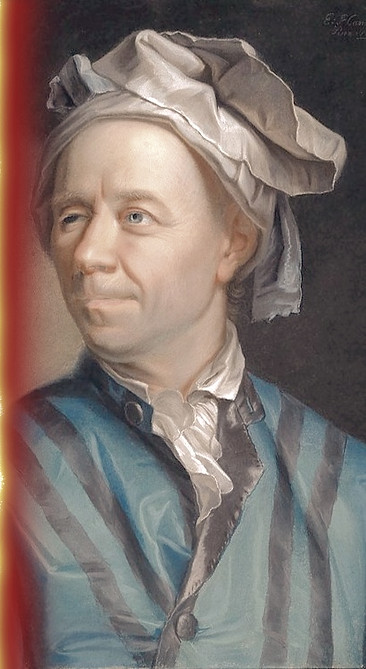
Euler's Algebra
His imaginaries explained!
Leonhard Euler is one of the most brilliant mathematicians ever. However, after he published his Algebra of 1770, mathematicians complained that he failed to multiply and divide imaginary numbers correctly.
They criticized Euler’s alleged errors for more than 200 years.
Such critics include mathematicians such as Étienne Bézout, Jean Garnier, Tristan Needham, as well as top historians of mathematics, such as Florian Cajori, Ivor Grattan-Guinness, and Morris Kline, plus, the engineer and successful writer Paul Nahin.
To the contrary, I discovered that Euler made no such mistakes.
Euler's procedures are logical and consistent but were misunderstood. I discovered that Euler’s algebra avoids contradictions in our conventional algebra. In American Mathematical Monthly.
“Euler’s ‘Mistake’? The Radical Product Rule in Historical Perspective”
The American Mathematical Monthly 114 (April, 2007), 273-285.
“Euler’s Imaginary Mistakes”
The Cult of Pythagoras: Math and Myths (Pittsburgh: University of Pittsburgh Press, 2012), 101-112.
“The Elegance of Euler’s Algebra of 1770”
The Euler Lecture: Keynote address for the 12th Annual Meeting of the Euler Society, St. Edward’s University, Austin Texas, July 21, 2014.
“Making Radically New Mathematics”
Negative Math: How Mathematical Rules Can Be Positively Bent (Princeton: Princeton University Press, 2006), 80-109.
“From Nothing to Infinity”
The Cult of Pythagoras: Math and Myths (Pittsburgh: University of Pittsburgh Press, 2012), 82-100.
“Dividing by Nothing”
Not Even Past, History Department UT Austin, 5 online pages, (12 April 2011). https://notevenpast.org/dividing-nothing/
“Teaching History of Mathematics,” Workshop for Instructors Replicating the Course ‘Perspectives on Science and Math,” UTeach Institute, UT Austin, Student Activities Center, November 11, 2011.
“Imagining Numbers! Inquiry Based Learning,” Workshop for Instructors Replicating the Course ‘Perspectives on Science and Math,” UTeach Institute, Student Activities Center, UT Austin, November 11, 2011.
“Much Ado About Less than Nothing: forgotten paradoxes showing that you actually had good reasons to be confused by negative and imaginary numbers in school, sensing important issues in the history of physics and math.” National Museum of American History, Smithsonian Institution. Washington D.C. June 19, 2001.

REVIEWS
"Martínez shows that it’s possible to construct a fully consistent system of arithmetic in which minus times minus makes minus. It’s a wonderful vindication...”
JAKE RANDELL
AMERICAN SCIENTIST
"Martínez can certainly take credit for having produced by far the best and most detailed account of this important strand in Einstein's early work.”
JÜRGEN RENN
MAX PLANCK INSTITUTE
“An essential text for any future reserarch on Bruno, Galileo and The Inquisition. ...possibly the most important book of the year for the history of astronomy.”
CLIFFORD CUNNINGHAM
ASTRONOMICAL HISTORY
BIO
Alberto Martinez is originally from San Juan, Puerto Rico. As a professor at UT Austin, he investigates the history of science, especially Einstein and relativity theory, history of math, historical myths, and Giordano Bruno and Galileo. He is a Fellow of the American Physical Society.
He also researches myths in political news media, The Eyes of Texas, and episodes in the history of money and corruption.
Now, he's finishing writing a novel about Albert Einstein.








